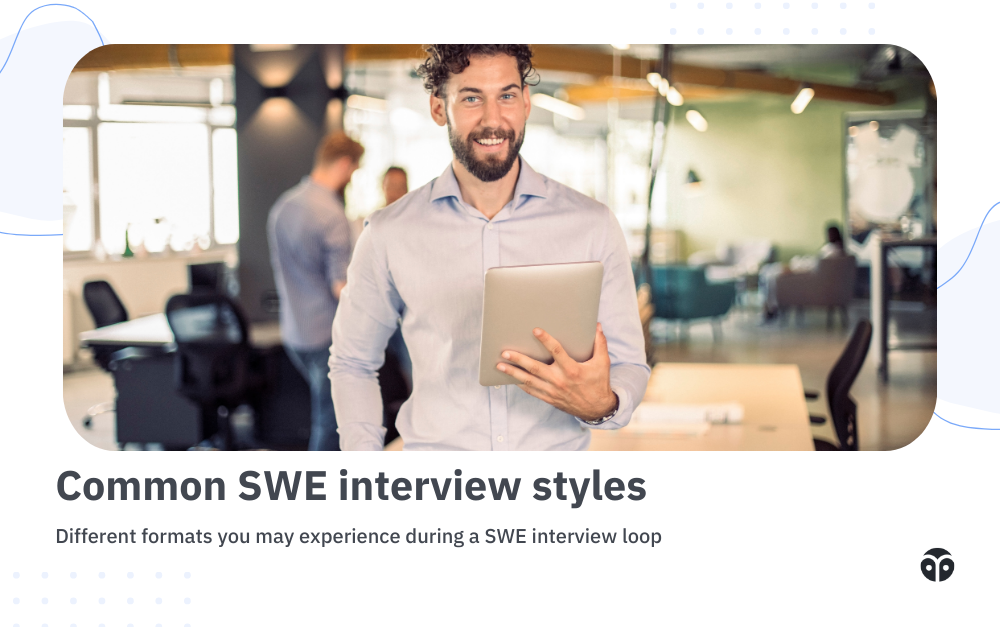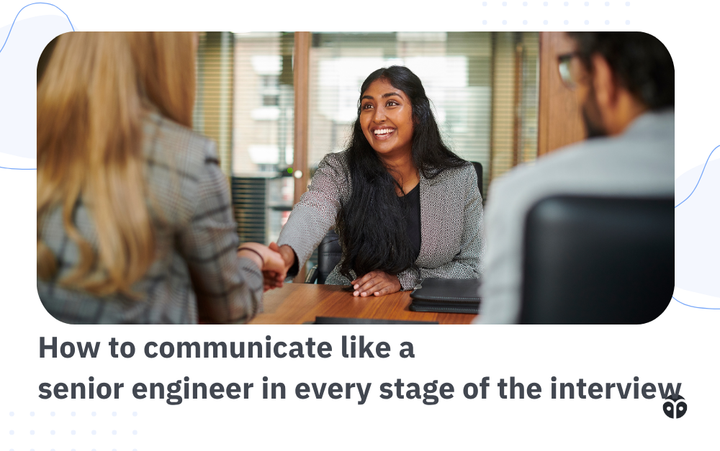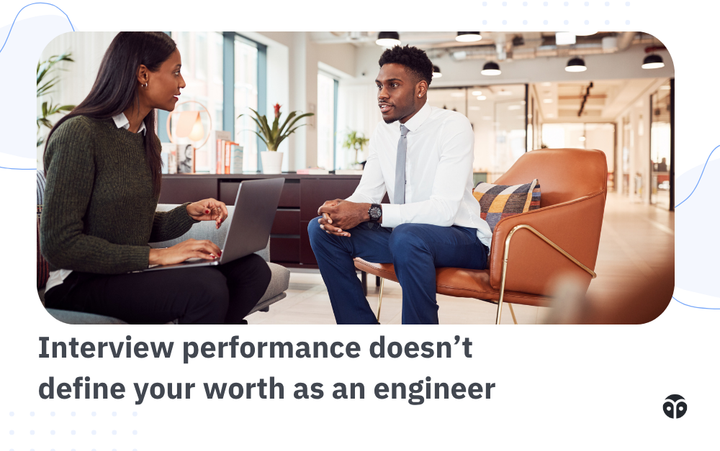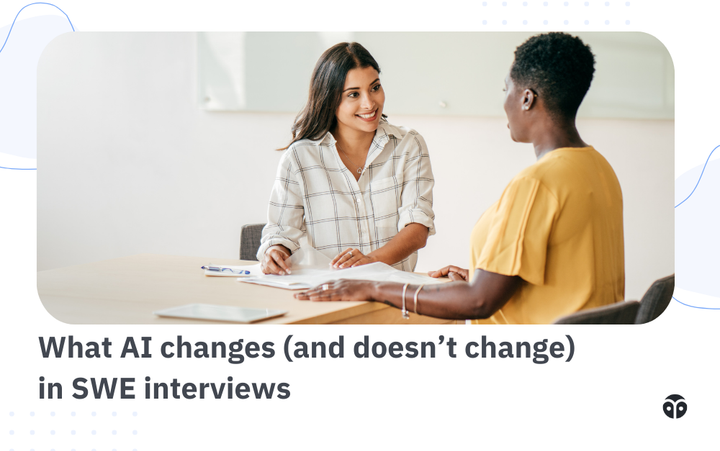A guide to common software engineering interview styles
There are a few different formats for SWE interviews. Here's what you need to know about each one.

Whether you're new to the process or a seasoned pro, it's easy to get tangled up in the terminology while navigating the job hunt. If you're ever unsure about what to expect in an upcoming interview, don't hesitate to ask your recruiter or company contact for more details. They want you to succeed and are there to help.
Here's a breakdown of the most common types of software engineering interviews and what you can expect from each one.
1. Recruiter Interview
Who you talk to: Recruiter
What to expect:The recruiter interview is typically a high-level conversation focused on your work history, interest in the company, and goals for the next role. These interviews are usually straightforward and designed to gauge whether your experience aligns with the position's requirements and whether you're a good fit for the company culture. This is your chance to make a strong first impression, so be prepared to discuss your background and why you're interested in this particular role.
2. Technical Screen
Who you talk to: Engineer or Engineering Manager
What to expect:The technical screen is where your coding skills will be put to the test. Usually lasting around an hour, this live coding challenge can take place in various environments, from compiled environments to simple text editors. The focus here is on your problem-solving abilities, often through data structures and algorithms or frontend design tasks. It's crucial to know what kind of technical screen you'll face, so ask your recruiter for details and tailor your preparation accordingly.
3. Online Assessment
Who you talk to: This is asynchronous
What to expect:Online assessments are varied and can cover anything from data structures and algorithms to backend or frontend concepts. These assessments are usually timed and can range in complexity and format. Some are similar to platforms like CodeSignal or HackerRank, while others might be more project-based. Since these tests can differ so much, it's essential to get as much information as possible beforehand. If the content isn’t clear, ask your recruiter for more details to ensure you're practicing the right material. This differs from a take-home assignment because it’s a scheduled, timed assessment (about 45-60 minutes for most companies) usually used early in the interview process to ensure you’re qualified for the role.
4. Take-Home Assignment
Who you talk to: This is asynchronous
What to expect:A take-home assignment is a project you're asked to complete on your own time, usually within a few days. These are more common for entry-level roles, particularly for frontend positions, but they can vary greatly depending on the company. The assignment might require a few hours of work, so manage your time wisely. Since the scope of these projects can be quite different from one company to another, clarify expectations with your recruiter before you dive in.
5. Onsite Interview
Who you talk to: Engineers, Managers/Team Leads, and possibly your recruiter
What to expect:The onsite interview is often the final step in the hiring process. It can take several hours and typically includes a mix of interview styles, such as algorithm challenges, system design interviews, and conversations with various team members. This is your opportunity to showcase your technical skills and how you interact with potential colleagues. Preparation is key, so make sure you know exactly what to expect by asking your recruiter for details.
6. Hiring Manager Interview
Who you talk to: Engineering Manager
What to expect:The hiring manager interview may be part of an onsite or a separate step altogether. This discussion usually focuses on your past technical projects and your impact in those roles. The goal here is to understand how your experience and skills align with the team's needs. Be ready to dive deep into your previous work and explain your contributions clearly.
7. Team Match Interview
Who you talk to: Engineering Manager, sometimes Engineers
What to expect:Team match interviews aren't a part of every company's process but are common in larger organizations with centralized interviewing. These interviews usually occur after you've passed the onsite stage and are more about finding the right team fit. They're generally more casual and focus on ensuring you'll mesh well with the existing team members. Think of this as a mutual assessment to see if this is the right environment for you.
8. Casual Call
Who you talk to: Depends on the nature of the call
What to expect:Sometimes, you'll have calls that aren't strictly evaluative. These might include a pre-onsite discussion with your recruiter about what to expect or a chat with a current engineer to better understand the role and company. These calls are less formal and are a good opportunity to ask any lingering questions you might have.
Get holistic job hunt support with Formation
The Formation Fellowship gives mid-level and senior engineering job seekers everything they need to land their dream roles—including personalized skill brush-ups, unlimited mock interviews with experienced software engineers and hiring managers from top-tier tech companies, and offer reviews and negotiation support.
Apply here for unconditional support from a team of engineering mentors, technical recruiters, career coaches, and more.



